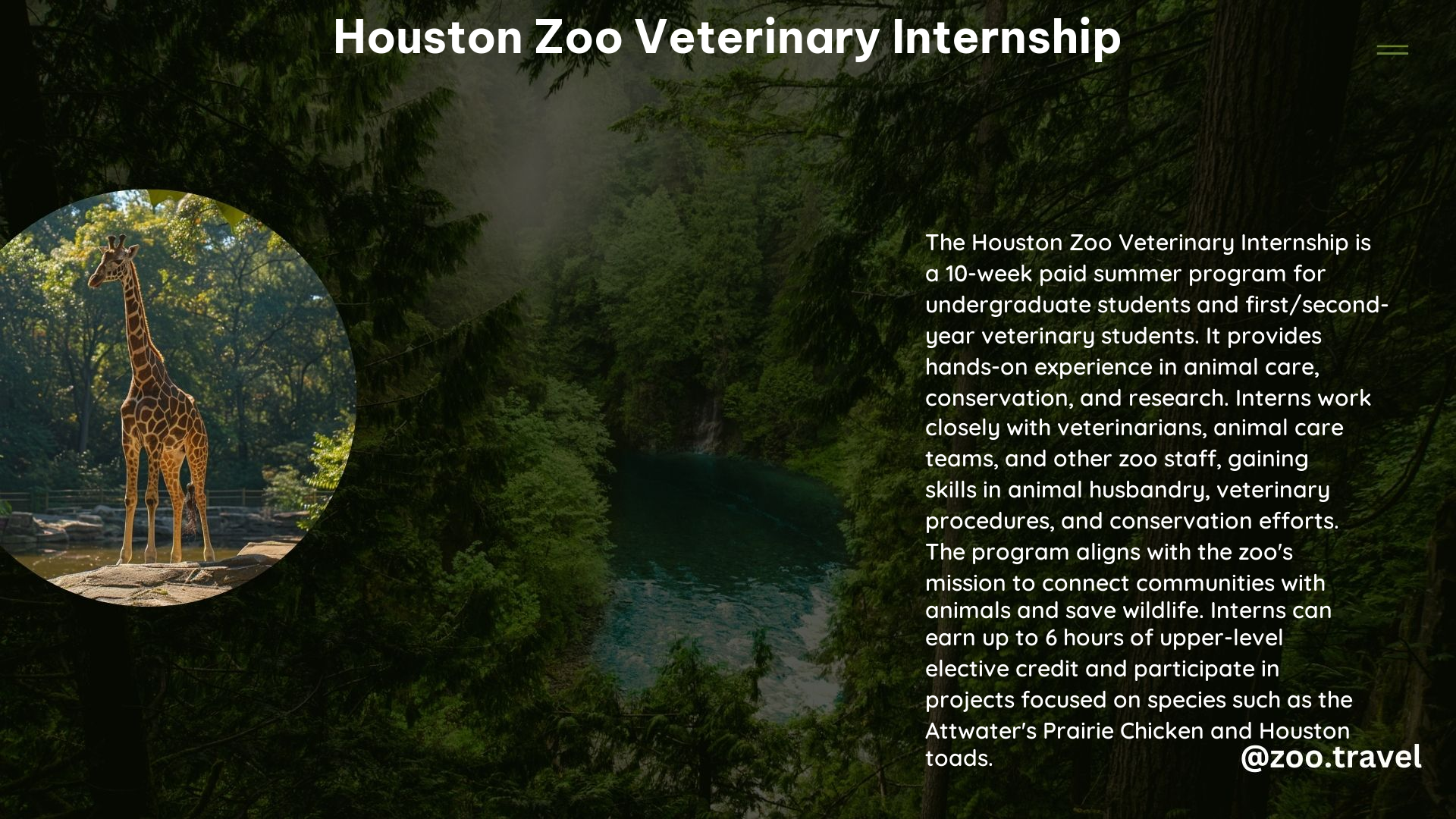The Houston Zoo Veterinary Internship is a unique opportunity for first and second-year veterinary students to gain invaluable hands-on experience in the field of zoo and wildlife medicine. This highly competitive program allows interns to work alongside experienced veterinarians, animal keepers, and other zoo staff, contributing to the zoo’s mission of connecting communities with animals and inspiring action to save wildlife.
Primary Responsibilities of a Veterinary Intern at Houston Zoo
As a veterinary intern at the Houston Zoo, you can expect to be involved in a wide range of tasks and responsibilities, including:
- Administering medical treatments to animals, such as injections and tube feeding.
- Inputting medical records and discussing treatment plans with veterinarians.
- Participating in research projects, including data collection and analysis.
- Shadowing veterinarians during daily procedures and meetings.
- Assisting in animal care and husbandry tasks.
- Collaborating with other departments, such as animal keepers and horticulture.
Conservation Programs Supported by Veterinary Interns at Houston Zoo

The Houston Zoo is actively involved in various conservation efforts, and veterinary interns play a crucial role in supporting these initiatives. Some of the key conservation programs that interns may contribute to include:
- Attwater’s Prairie Chicken captive breeding program.
- Houston Toad conservation program.
- Elephant endotheliotropic herpesvirus (EEHV) monitoring and research.
- Other conservation efforts focused on local and global species preservation.
Research Projects Typically Worked on by Veterinary Interns at Houston Zoo
In addition to hands-on animal care, veterinary interns at the Houston Zoo often have the opportunity to participate in various research projects. These projects aim to improve animal health, welfare, and conservation outcomes. Some examples of research projects that interns may be involved in include:
- Diagnostic modalities for reticuloendotheliosis virus (REV) in Attwater’s Prairie Chickens.
- Effective blood collection techniques and kidney function evaluation in Houston Toads.
- Research on EEHV in Asian elephants.
- Other projects focused on improving animal care and conservation outcomes.
Additional Details
The Houston Zoo Veterinary Internship is a highly competitive program that typically lasts for 10 weeks during the summer. Interns work closely with veterinarians, animal keepers, and other zoo staff, gaining valuable experience and transferable skills. The program also provides opportunities for networking and contributing to the zoo’s mission of connecting communities with animals and inspiring action to save wildlife.
References
- Urda, J. (2017, August 23). What Do Veterinary Interns Do? – The Houston Zoo. Retrieved from https://www.houstonzoo.org/blog/what-do-veterinary-interns-do/
- Houston Zoo. (2023, August 16). Meet our Summer Conservation Interns – The Houston Zoo. Retrieved from https://www.houstonzoo.org/blog/meet-summer-conservation-interns/
- Houston Zoo. (n.d.). Careers – The Houston Zoo. Retrieved from https://www.houstonzoo.org/about/careers/
- Dayforce Jobs. (2023, November 14). Houston Zoo Internship | Dayforce Jobs. Retrieved from https://jobs.dayforcehcm.com/en-US/houstonzoo/CANDIDATEPORTAL/jobs/2236
- Frankino, W. A. (2023, December 1). | Houston Zoo Paid Summer Internship. Retrieved from https://frankino.uh.edu/teaching/houston-zoo-summer-intern/.
